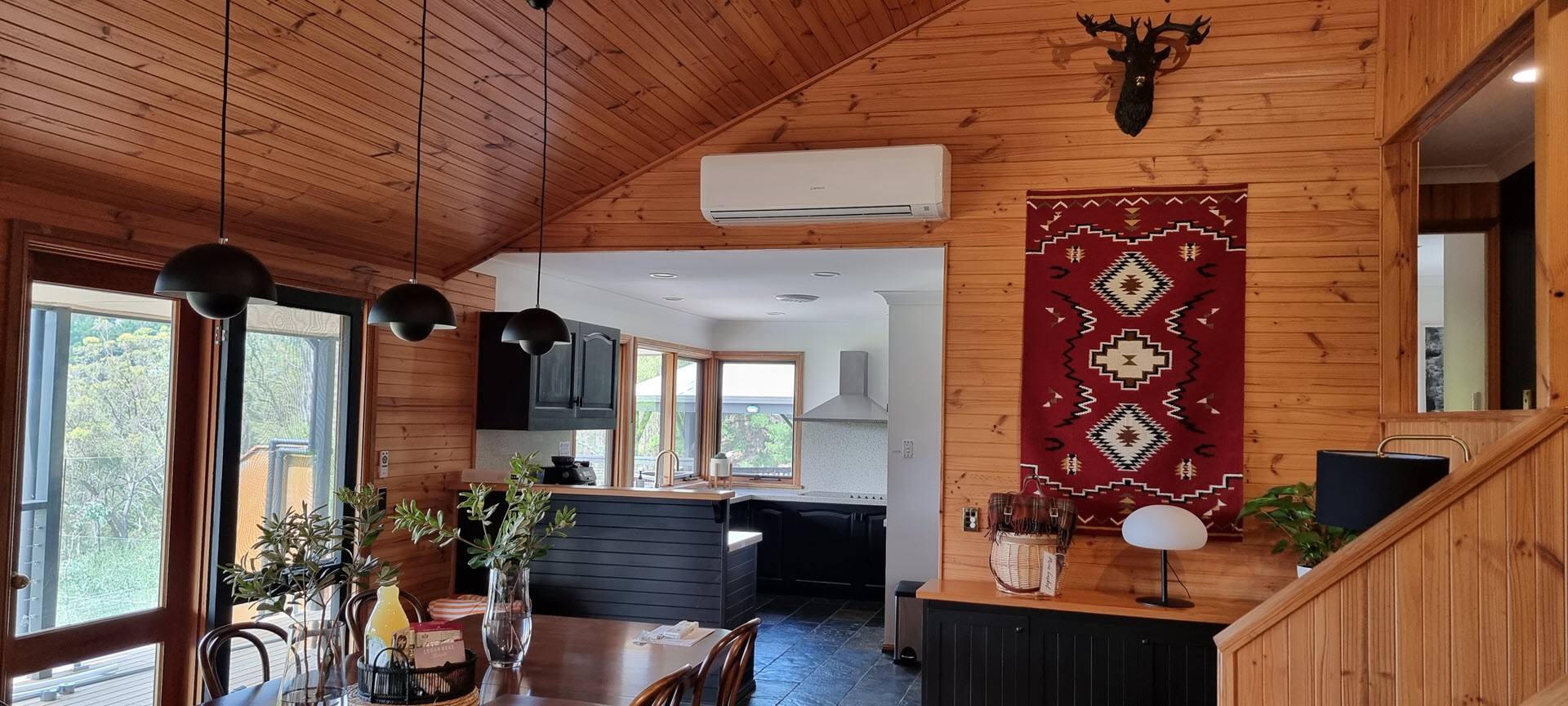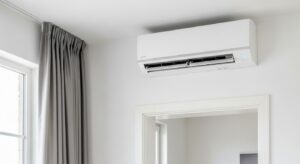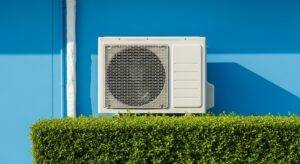The holiday season is a time for celebration, connection and catching up with loved ones. In Australia, that often means warmer weather, a house full of guests, and longer days spent relaxing indoors and out. Whether you’re hosting a weekend barbecue or having relatives stay for a few nights, one of the easiest ways to make everyone feel comfortable is ensuring your air conditioning is up to the task.
If you live in the Blue Mountains or anywhere with variable summer weather, your AC might be flipping between heating and cooling in the same week. A bit of pre-holiday prep will not only keep your guests feeling at home, but also help you avoid costly breakdowns when you least expect them.
Here’s a complete guide to getting your air conditioning system holiday-ready.
1. Start With a System Check
Before guests arrive, give your system a quick once-over. Turn it on and check that it’s cooling or heating efficiently, running quietly, and responding to remote control settings. If you notice any strange smells, weak airflow or odd noises, it’s a red flag — and a good time to schedule a service before the holiday rush. If your unit hasn’t been used for a few months, or if it’s been used heavily during spring, it may be clogged with dust, pet hair or pollen. A minor issue now can quickly become a major inconvenience when your home is full of people.
2. Clean or Replace Air Filters
One of the most important and overlooked maintenance tasks is cleaning the air filters. Dirty filters reduce airflow, strain the system and circulate dust and allergens — not great for guests with asthma, hay fever or sensitivities. Most wall-mounted split systems have reusable filters that slide out easily. Wash them in lukewarm, soapy water and let them dry completely before reinserting. For ducted systems, check the return air grille — if your filters are disposable, replace them according to the manufacturer’s instructions. If you’ve had any recent renovations, pets shedding, or bushfire smoke in the area, this step is especially important.
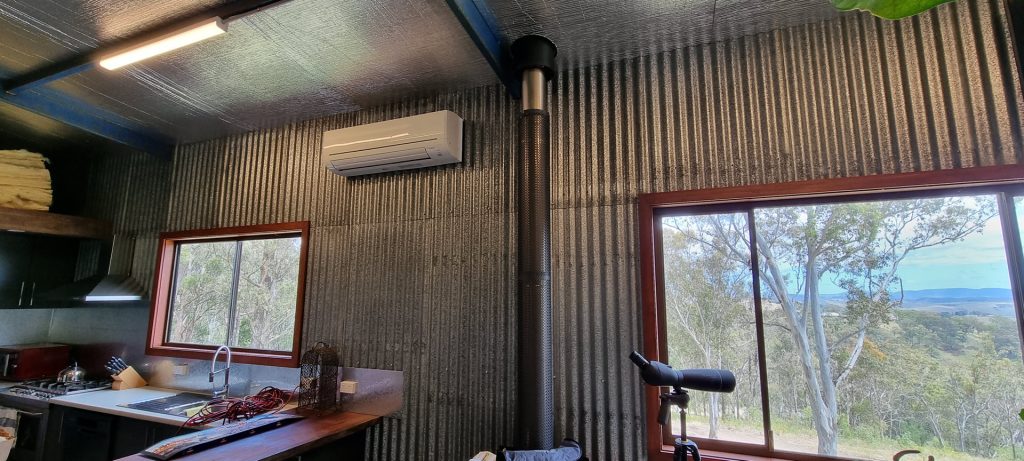
3. Tidy Up Outdoor Units
Your AC’s outdoor unit is often forgotten, but it plays a huge role in keeping things running smoothly. Make sure the area around it is clear of leaves, debris, cobwebs and overgrown plants. Restricted airflow can cause overheating and reduce the system’s ability to cool efficiently. Give the unit a gentle hose-down (power off first) if it’s dusty or looks clogged with gunk. Be careful not to bend any fins or damage components.
4. Optimise Settings for Comfort and Efficiency
With multiple people in the house, you’ll want to strike a balance between comfort and energy use. A good starting point is 22–24°C on cooling mode, and around 20–21°C for heating. Remind guests not to crank the temperature to extremes — lower settings won’t cool the room faster, they’ll just make the system work harder. Use the “eco” or energy-saving modes if available to moderate power consumption. If your system has a sleep mode or quiet mode, switch it on during the evening hours to maintain comfort without unnecessary noise or running time.
5. Use Fans to Support Airflow
Ceiling fans or pedestal fans are great companions to your AC. They help circulate cooled or heated air throughout the room, reducing the burden on your air conditioner and creating an even temperature. Set your ceiling fan to rotate counter-clockwise in summer for a cool breeze effect, and clockwise in winter to push warm air down from the ceiling.
6. Create Comfort Zones for Guests
If you’re hosting overnight guests, make sure their rooms are climate-ready. If you’ve got a zoned ducted system, enable the zones where guests will sleep and shut off unused areas. For homes with portable or split system units, check that air vents are positioned correctly and not blowing directly onto beds or sitting areas — especially for babies, elderly guests or anyone sensitive to cold air. If you don’t have AC in every room, consider offering portable fans or heaters and drawing curtains during the day to keep the sun out.
7. Freshen Up Indoor Air Quality
With more people inside, it’s easy for rooms to get stuffy. To avoid that “closed-in” feeling, consider adding indoor plants that help purify the air and add a natural touch. Open windows in the early morning or late evening when it’s cool outside to let in fresh air without letting the heat in. If anyone in the family has allergies or if there’s been bushfire smoke recently, you might also use an air purifier alongside your AC for added protection.
8. Check Timers and Remote Controls
Set timers to pre-cool or pre-warm rooms before guests arrive or go to bed, rather than running the system constantly. This reduces energy bills and keeps the home comfortable at the right times. Check that remotes have fresh batteries and are easy to access. If you’ve got a smart AC or Wi-Fi control, now’s a good time to test or set up voice control or scheduling features — they can make guest comfort effortless.
9. Have a Backup Plan
With guests relying on your home’s comfort, it’s smart to have a contingency. If your main AC fails, a backup fan, pedestal air cooler or even a portable split system can provide temporary relief until repairs are sorted. Consider keeping your technician’s contact details handy, and if you have a home warranty or service plan, make sure it’s up to date.
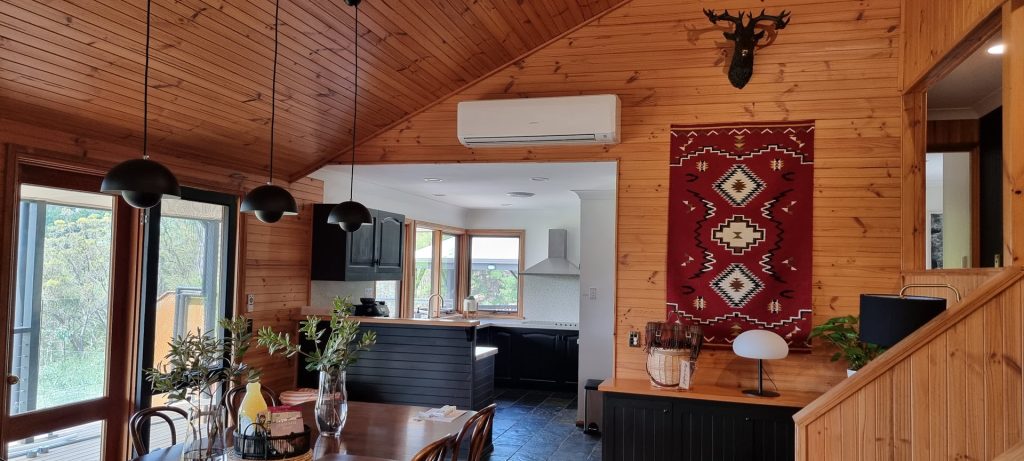
Related Questions
How far in advance should I check my AC before guests arrive?
It’s best to check it 1–2 weeks ahead of time, especially if you need to schedule a technician. This gives you enough breathing room to sort out any issues without stress.
What if I don’t have air conditioning in guest bedrooms?
Use fans, keep blinds closed during the day to block out heat, and offer lightweight bedding. You can also place guests in cooler parts of the home, such as downstairs rooms or shaded areas.
Can I run the AC and oven at the same time during Christmas lunch?
Yes, but be aware that cooking heats up the house significantly. Try using fans to draw hot air out or pre-cool entertaining areas before you start cooking.
Should I service my AC every year?
Yes. Even if it seems to be running fine, a yearly service helps catch problems early, improves efficiency and extends the life of your unit. Pre-summer is the ideal time to do this.
Conclusion
Hosting over the holiday season is a joy — but it comes with its fair share of prep work. By giving your air conditioner a little attention ahead of time, you can create a cool, calm and inviting environment that your guests will appreciate. From filter cleaning to fine-tuning comfort settings, these small steps go a long way in keeping your home running smoothly while the esky is full and the house is bustling. Here’s to a festive season filled with laughter, good company and just the right indoor temperature. Stay cool, Blue Mountains — and happy holidays!

